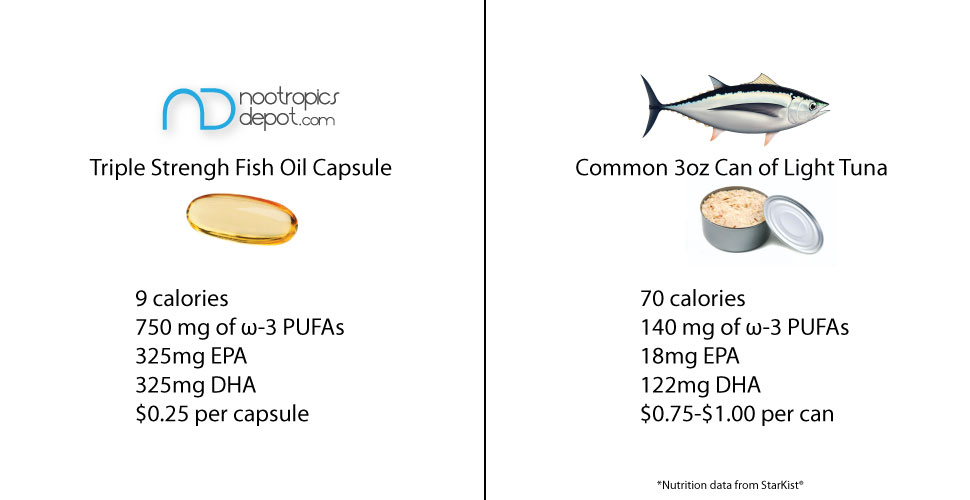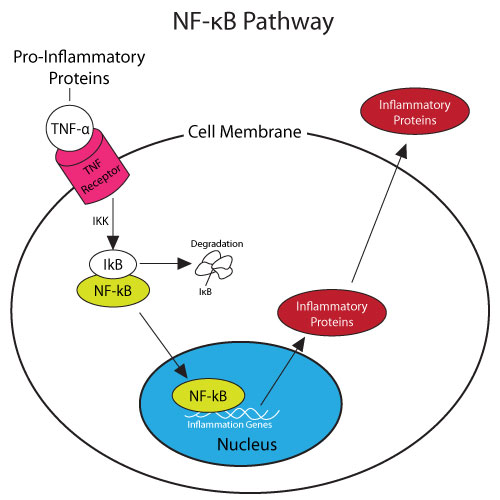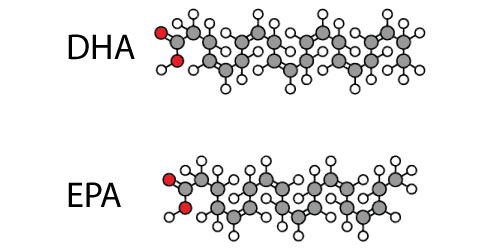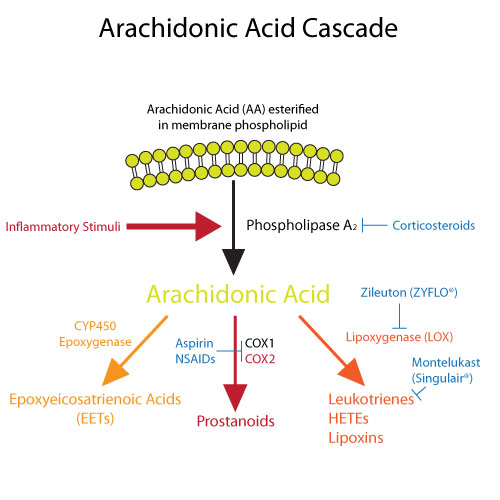There is one important question that we need to answer before diving into this article. Why supplement fish oil when I can just eat fish? There are a couple of answers to this question, with the most obvious answer being convenience and cost. It is much easier, cost effective, and calorie friendly to simply swallow a purified fish oil capsule rather than having to prepare and eat fish. For example, one capsule of triple strength fish oil clocks in at 9 calories, 750 mg of ω-3 PUFAs and 0.25 USD. Of this 750 mg: 325 mg is EPA, 325 mg is DHA and the remaining 100 mg is composed of unspecified ω-3 PUFAs. In terms of DHA this is equivalent to about 140 grams of light canned tuna (162 calories) and in terms of EPA, a whopping 690 grams of light canned tuna (800 calories). In terms of pricing, assuming an average cost of 0.25 USD per ounce of light canned tuna, the DHA equivalent would cost 1.23 USD and the EPA equivalent would cost 6.08 USD. However, the real cost of regularly eating canned light tuna extends much further than its financial and caloric cost. Since tuna is a large predatory fish, it tends to bioaccumulate various compounds, the most concerning of which is methylmercury, a potent neurotoxin. According to ‘Got Mercury?’ our canned light tuna EPA equivalent dose would put us well above the daily allowable methylmercury intake set by the US Environmental Protection Agency. The triple strength purified fish oil capsule on the other hand is lab tested for methylmercury, and is guaranteed to be well below the daily allowable methylmercury intake. To summarize, without taking into account the nutritional value of fish and solely focusing on DHA and EPA content, the triple strength purified fish oil is the clear winner; cheap, convenient and no risk of methylmercury poisoning.













